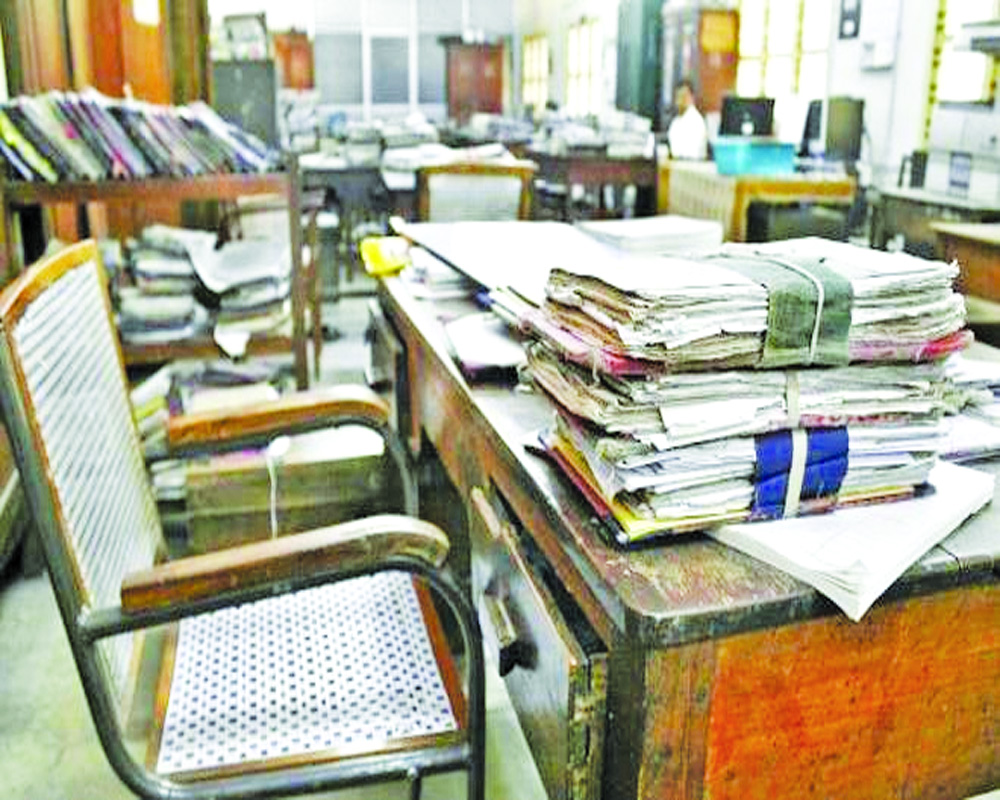The government servants must realize that their mandate is to serve people; fighting amongst themselves hardly elevates their status
Inter-services turf wars and rivalries between various governmental ‘services’, is an old hat. Given that there is an invariable overlap of responsibilities, duties, and perceived ‘fiefdoms’ amongst the various services, a sense of competitiveness is invariable. There are also hierarchical issues of unsettled disparity and entitlements amongst various services that breed discontent and one-upmanship. There was a time when Indian Foreign Services (IFS) was most sought after, but today Indian Administration Services (IAS) is increasingly the preferred choice, among all. This is despite the fact that the IAS remains the most generalist as opposed to all other services which are specialists — also IAS is most prone to exposure in the hinterland and engagement by the timeserving and often difficult, provincial politicians.
The importance of these services can be gauged by the insistence of a ‘steel frame’ onto governance of India, as envisaged by Sardar Vallabhbhai Patel, widely hailed as the ‘Father of Modern All India Services’. The term ‘Services’ was suffixed to all generic and specialist arms to imply ‘Service’ to the citizenry, nation, and work towards the Constitutional vision, as envisaged by the founders of India’s independence and Constitution. Patel had famously goaded the first batch of IAS probationers, “Along with discipline, you must cultivate an ‘esprit de corps’ without which service as such has little meaning. You should regard it as a proud privilege to belong to the service., covenants of which you will sign, and to uphold throughout your service its dignity, integrity, and incorruptibility”. Seventy-five years since those sagacious and stirring words, some have upheld that sacred covenant and many more have fallen short of that sense of duty, dignity, and personal integrity.
Recently, the no-holds-barred and vicious public fracas between two lady governmental officials, one from the IAS and the other from IPS, was reflective of the morass that is bound to rust the purported ‘steel frame’. The exchange of serious barbs, insinuations, and petty language had all the makings of a potboiler but certainly not of the ostensible service covenants signed. Drama hit a low with one accusing the other of sharing ‘obscene’ photos, reportedly picked up from social media and accompanying platforms towards scandalizing the narrative, attributed to the other. A shrill catfight led to invoking the past of each other, including serious allegations of supposed dereliction of duty during the covid pandemic that had resulted in twenty-four deaths! So severe was the diatribe that even the usually unhinged politicians were horrified as the Home Minister stated, “They both are behaving in such a bad way - not even normal people on the street like this. Let them do whatever they want on their personal issues but coming before the media and behaving that way is not right”. Soon they were both transferred, While this temporary pull-back and reprieve from the shenanigans will thaw the situation – but the larger significance of the incident is loaded with implications for the citizenry.
Firstly, such a free-for-all is suggestive of the inefficacy of the existing redressal systems, as it makes a mockery of the same in the public eyes. With both the IAS and the IPS officials resorting to uncivil means instead of escalating the matters to higher authorities, representing, or even resorting to judicial options, the messaging is implicit. Secondly, by resorting to public naming and shaming of each other, they have inadvertently acknowledged and sanctified the unchecked power of filth, yellow journalism, and scandalous imputations, as the more winning ways of disagreement. Thirdly, invoking the ostensible past of each other and with the washing of dirty laundry of antecedents – both willy-nilly alluded to the proverbial cupboard of excesses, missteps, and wrongful exercise of power, as is popularly imagined for bureaucrats. Lastly, the nature of the suggestions was so vile and despicable that to talk about words like integrity, duty, and ‘service’ seemed completely out of place.
Those governmental servants (often an oxymoron) who ought to be seen as modicum of propriety and sobriety as indeed captured by the so-called ‘vision statement’ of Karnataka Police which promises to, “uphold the Law and the Rights of all people for a safe and secure environment, conducive to their internal and external growth and development”, such a specter was hardly reassuring. Already there is a growing perception of ‘disconnect’, hubris, and highhandedness attributed to public servants, but such a public shame goes beyond that as it posits the abject futility of civility and mandated recourses, should one try to resolve any issue as per the laid down procedures.
This specific case of two warring women bureaucrats also regrettably diminishes the cause of women's empowerment and presence in public space as it offers fodder to the usually sexist and chauvinistic gallery that still dominates the corridors of power. Sardar Patel also suggested, “Don’t misuse your valour. Remain united. March forward in all humility, but fully awake to the situation you face, demanding your rights and firmness”. Clearly, this message was lost on the erring officials who didn’t think twice before making a public spectacle of themselves, their ‘service’, and above all the portents of governance.
(The writer, a military veteran, is a former Lt Governor of Andaman & Nicobar Islands and Puducherry. The views expressed are personal)


























